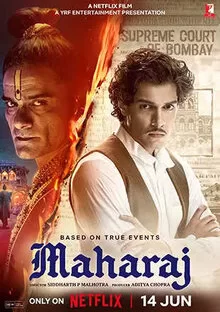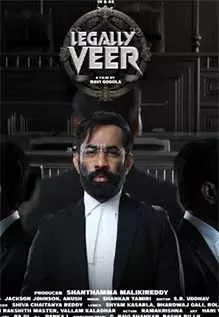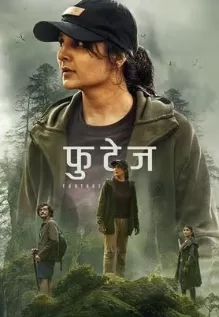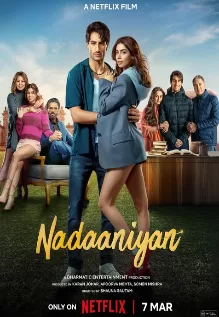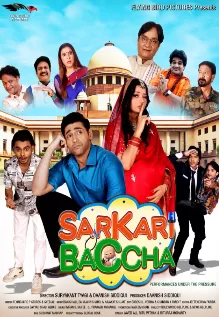🌟🌟 (2 out of 5)
Hello, folks! It’s your favorite cynic Review Rani back in action, and boy do I have a treat for you. So, I sat through a historical drama that seemed to be stuck in a time warp, and no, I don’t mean it in a good way. Ready for a roller-coaster ride of emotions? Well, buckle up, because here comes the review!
Set in the era of pre-independence, our movie is an attempt to depict the life of Karsandas Mulji, a Gujarati journalist and social reformer. The guy had guts, I’ll give him that, but I’m not so sure about the movie. It tried to portray Mulji’s fight against a not-so-holy religious leader who was more into exploiting his female followers than guiding them towards enlightenment. And no, it’s not your typical courtroom drama. Rather, it’s an attempt at a historical recount of the events leading to the historic libel case of 1862.
Mulji, a contemporary of Dadabhai Naoroji, was an advocate for gender equality and social change. He can be considered a precursor to our modern-day ‘Me Too’ movement. But the director, Siddharth Malhotra, seems to have taken the scenic route down memory lane. The movie has a sort of old-school flavor to it, and not the good kind. The pacing reminded me of a snail race, and the setting felt more like a theater play than a film. But hey, we can cut them some slack since it was shot during a pandemic.
The fresh faces in the film brought a breath of fresh air. Junaid Khan, Aamir Khan’s son, made a decent debut. He captured Mulji’s spirit and mind quite well but had a tendency to get a little too loud at times. Sharvari Wagh, on the other hand, was a ray of sunshine in this otherwise gloomy drama. Shalini Pandey didn’t have much to do, but she did a fair job with her small role.
Now, let’s talk about the biggest disappointment of this film – Jaideep Ahlawat. The guy’s got talent, but his portrayal of the villain was more sleep-inducing than terrifying. I mean, who can be scared of a guy who looks like he’s sleepwalking through the set?
Despite the odds, the film kept afloat, mainly due to the newcomers’ performances and its challenge against blind faith. The story remains relevant today, emphasizing the importance of actions over titles. Mulji’s fight for press freedom centuries ago is still pertinent, but sadly, the narrative of the film was as exciting as watching paint dry.
Rani’s Wrap-Up: The film tried to light a fire under the viewers but ended up being wetter than a monsoon morning. The story is important, the performances are genuine, but the execution? Well, let’s just say it could’ve used a bit more spice. So, if you’re into movies that are more about preaching than entertaining, this might just be the film for you. But don’t say I didn’t warn you! 😉

